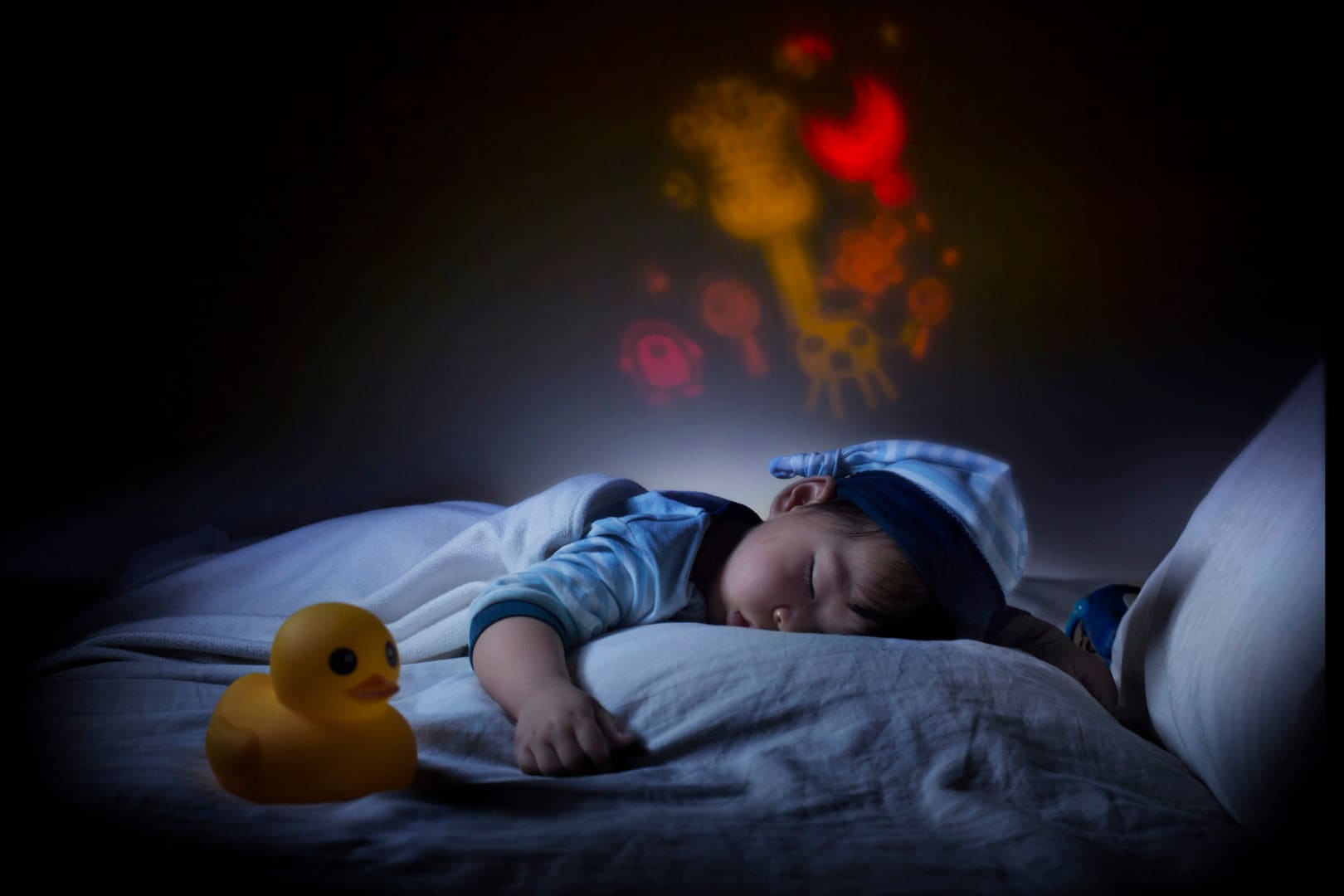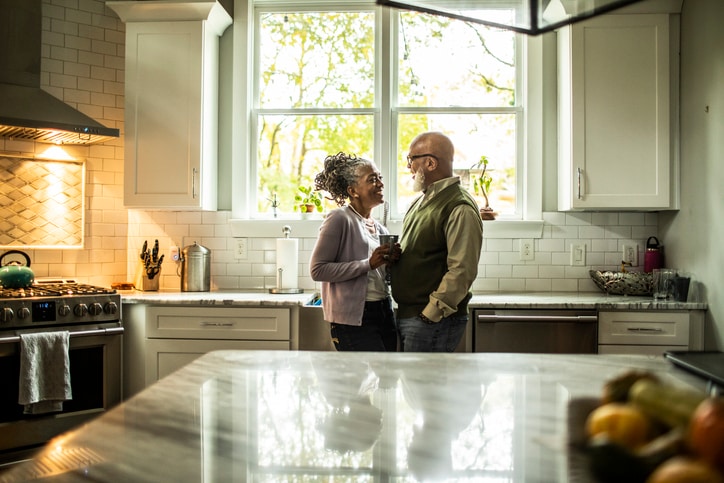With all the middle-of-the-night waking your little one — and you — will be doing the first year of their life, a night light may sound like a good idea. But do babies need a night light? Not necessarily. However, there are benefits (as well as drawbacks) to having your baby sleep with one.
“If you’d like to use a night light in your infant’s room, or your room if you’re sharing a bedroom, that’s perfectly OK,” says Dr. Amna Husain, F.A.A.P., a pediatrician at Pure Direct Pediatrics in Marlboro, New Jersey. “It will be easier to see what you’re doing in the middle of the night when it comes to feedings and diaper changes.”
While there isn’t a one-size-fits-all rule when it comes to babies and night lights, there are a few things to keep in mind before you invest in soft lighting for the nursery. Here, experts weigh in on everything parents should know before using a night light in their infant’s room.
What to know about using a baby night light
It can affect baby’s circadian rhythm
An infant’s circadian rhythm, or body clock, needs to set properly to let a baby start sleeping less during the day and more at night. In order to have your little one start logging more zzz’s when they’re supposed to (as opposed to sleeping all day and partying all night), it’s a good idea to keep things dark when it’s time for bed.
“When you keep the room very dark or dim in the evenings and let the natural light in during the day, it will help develop your baby’s circadian rhythms,” says Husain.
According to Sleep.org, when an environment is lighted, the production of melatonin — the hormone that regulates the sleep-wake cycle — is inhibited.
That said, if your child is using a night light and sleeping well — great! Sleep.org also acknowledges that for some babies, “the little bit of light [may make them] calmer or less anxious.”
Night lights make feedings less disruptive
According to Linda Szmulewitz, a certified gentle sleep coach and owner of Sleep Tight Consultants, night lights, while more for parents than babies, can mitigate even bigger disruptions during the night.
“When babies are still waking in the middle of the night, it can be helpful for parents to have a very dim night light on so that they can see where they’re going in the room when responding to their baby,” Szmulewitz says. “Night lights make it so that you don’t have to turn on all the lights in baby’s room, making it too bright and causing a lot of disruption in baby’s sleep.”
Tips for using a baby night light
Camouflage it
If you’re on the fence about putting a night light in your baby’s room, here’s a good compromise: Camouflage it.
“When parents use light in their child’s room, I often recommend that they put it behind a piece of furniture so it’s more diffused, as opposed to being a glowing beacon that baby will likely stare at,” Szmulewitz says. “Babies, particularly newborns and even children up to 6 months old are often distracted by lights and will stare at them [since their vision is so blurry in the beginning]. Parents tell me all the time that their baby is looking at them in their video monitor, but really, they’re likely staring at the lights on the monitor in their room.”
Stick to the basics
As with all baby gear, night lights have come a long way since their humble beginnings as just, well, lights. Night lights that play music, night lights that project stars — parents can now pretty much find a night light that does anything short of changing baby’s diaper.
But as cool as these products are, you should probably just stick to the basics when choosing a night light.
“I discourage parents from using night lights that play music — or playing music in baby’s room at night period — since music during sleep can prevent your brain from getting into a good sleep pattern overnight,” Szmulewitz says. “If parents are playing music at bedtime, I always have them turn it off when their child is then going into the crib to sleep. If parents want to play something continuously throughout the night, I suggest white noise, which is a consistent sound that can also help block out household noises.”
Consider a red light
While lights at night have been proven to suppress melatonin production, there is one type of light that affects circadian rhythms the least: red lights.
“For parents who want to use a night light in their baby’s room, I usually recommend a red light, which is a color that doesn’t block melatonin production, due to its low color temperature,” says Szmulewitz.
There are a number of red night lights available, but if you’re the DIY type, sleep.org claims using a red Christmas bulb in place of the one that’s in your baby’s regular night light will do the trick just as effectively.
Go with your gut
Statistically speaking, lights at night can be disruptive to sleep, but that doesn’t mean you need to unplug your little one’s night light if they’re snoozing fine with it. The American Academy of Pediatrics encourages parents to look at their child as an individual and see how they sleep best — in the complete dark or with a little light. After all, no one knows baby’s sleep patterns better than the person getting up with them each night.






